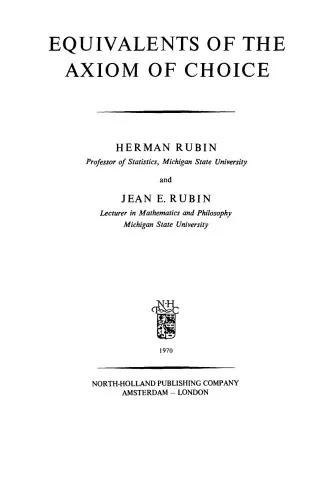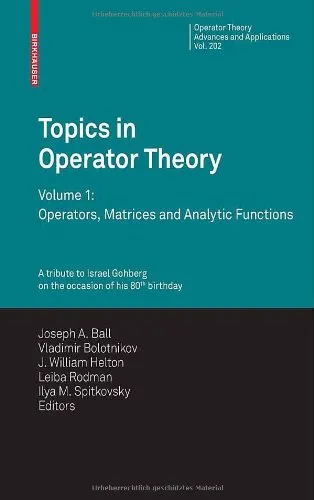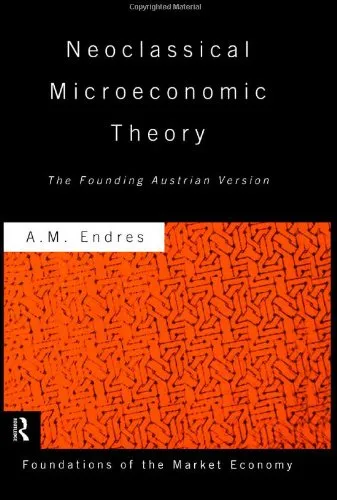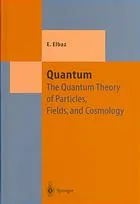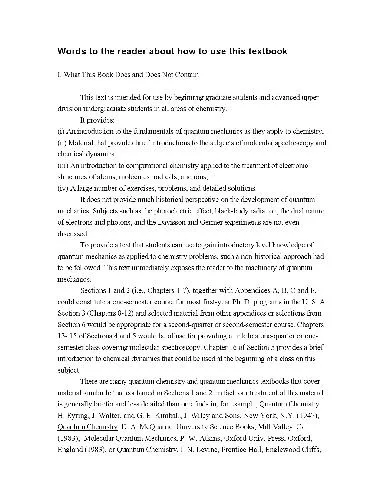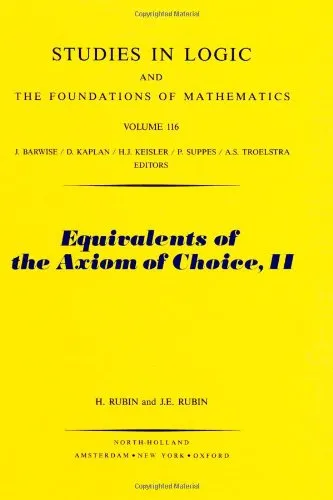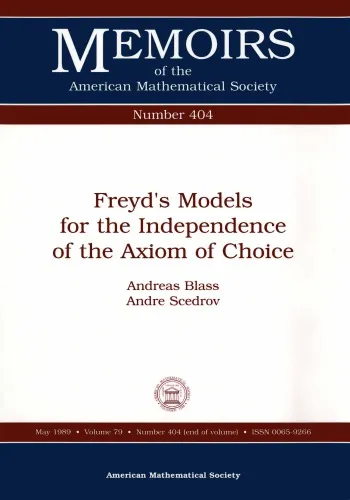Equivalents of the Axiom of Choice
4.6
بر اساس نظر کاربران

شما میتونید سوالاتتون در باره کتاب رو از هوش مصنوعیش بعد از ورود بپرسید
هر دانلود یا پرسش از هوش مصنوعی 2 امتیاز لازم دارد، برای بدست آوردن امتیاز رایگان، به صفحه ی راهنمای امتیازات سر بزنید و یک سری کار ارزشمند انجام بدینکتاب های مرتبط:
معرفی کامل کتاب "Equivalents of the Axiom of Choice"
کتاب "Equivalents of the Axiom of Choice" یکی از آثار مهم و کلاسیک در حوزه ریاضیات و منطق است. این کتاب با تکیه بر رویکردی فوقالعاده دقیق و جامع به بررسی معادلهای مختلف اصل انتخاب (Axiom of Choice یا به اختصار AC) میپردازد. اصل انتخاب به عنوان یکی از مهمترین اصول بنیادی در ریاضیات، تأثیری شگرف بر توسعه تئوری مجموعهها (Set Theory)، آنالیز، و شاخههای مختلف ریاضیات داشته است. این کتاب به قلم من، هرمن رابین، نوشته شده و ساختاری قابل فهم و علمی برای تمام کسانی که به منطق ریاضی و ساختار اصول موضوعی علاقهمندند، ارائه میدهد.
چکیدهای از کتاب
کتاب "Equivalents of the Axiom of Choice" به صورت سیستماتیک مجموعهای از نتایج مرتبط با یکی از مهمترین اصول ریاضیاتی، یعنی اصل انتخاب، را گرد هم آورده است. اصل انتخاب به ما اجازه میدهد که از میان مجموعهای از مجموعههای غیر خالی، یک عضو از هر مجموعه انتخاب کنیم، حتی اگر هیچ معیار مشخصی برای این انتخاب وجود نداشته باشد. سؤال اصلی این کتاب این است: "آیا اصل انتخاب به شکلهای مختلف اما معادل میتواند تفسیر شود؟" در این اثر یاد میگیرید چگونه بیش از ۸۰ گزاره و عبارت منطقی به طور مستقیم یا غیرمستقیم معادل با AC هستند. در این کتاب، مفهومی که به نام مدلهای ریاضی (Mathematical Models) شناخته میشود به طور دقیق مورد بررسی قرار گرفته و تأثیر اصل انتخاب بر این مدلها تحلیل شده است.
نکات کلیدی
در این کتاب میتوانید نکات مهمی درباره اصل انتخاب و معادلهای آن بیاموزید که شامل موارد زیر است:
- تحلیل دقیق معادلهای مختلف اصل انتخاب و مقایسه آنها
- بحث درباره تأثیر principle of dependent choice و weak forms of AC در حوزه هندسه و آنالیز
- مروری بر نقش بنیادی اصل انتخاب در ساختار منطقی ریاضیات مدرن
- معرفی چندین روش اثبات و تکنیک در تئوری مجموعهها
نقلقولهای معروف از کتاب
"اصل انتخاب، برخلاف تصورات اولیه، نه تنها یک ابزار محاسباتی بلکه سنگ بنای بسیاری از نظامهای منطقی است."
"در نبود اصل انتخاب، بسیاری از مفاهیم اساسی مانند توابع چندمقداری و ترتیب جزئی بیمعنا خواهند شد."
چرا این کتاب اهمیت دارد؟
کتاب "Equivalents of the Axiom of Choice" یکی از آثار جامع و بنیادی است که نقشی پررنگ در درک بهتر ریاضیات و منطق دارد. اصل انتخاب نه تنها یک اصل کاربردی در ریاضیات است، بلکه پایهگذار بسیاری از پیشرفتهای علمی و حل مسائل پیچیده میباشد. ارائه معادلهای مختلف این اصل به علاقهمندان و متخصصان اجازه میدهد تا دید وسیعتر و عمیقتری نسبت به تأثیرات آن در رشتههای مختلف به دست آورند. اهمیت ویژه این کتاب در این است که به جای تمرکز بر یکی از صورتهای اصل انتخاب، به بررسی و تحلیل مجموعهای گسترده از صورتهای معادل آن که در موقعیتهای گوناگون مورد استفاده قرار میگیرند، پرداخته شده است.
این کتاب منبعی ارزشمند برای دانشجویان تحصیلات تکمیلی، اساتید دانشگاه، و پژوهشگرانی است که به دنبال درک مفاهیم پیچیدهتر تئوری مجموعهها، آنالیز، و جبر هستند. همچنین مطالعه این کتاب به افرادی که علاقهمندند ارتباط میان منطق و ریاضیات را بهتر درک کنند، توصیه میشود. در واقع، این اثر به هر فردی که مایل است حرفهایتر به مسائل بنیادی ریاضیات بپردازد کمک میکند تا تفکر تحلیلی خود را ارتقا دهد.
Introduction to 'Equivalents of the Axiom of Choice'
The book 'Equivalents of the Axiom of Choice' explores one of the most profound and debated mathematical principles in modern set theory—the Axiom of Choice (AC). Authored with precision and intellectual rigor, this work is a cornerstone for mathematicians and logicians seeking to understand the foundations of mathematics. The Axiom of Choice is often regarded as a subtle yet powerful concept that bridges the gap in proving important theorems and solving problems, and this book dives deep into its implications, equivalents, and compelling nuances.
The Axiom of Choice asserts that given a collection of non-empty sets, it is possible to choose an element from each set. While it may sound intuitive, its consequences are far-reaching and, at times, counterintuitive. It connects directly to fields like algebra, analysis, topology, and even philosophy, sparking debates and discussions about its necessity and implications.
Detailed Summary
The book commences with a historical perspective of the Axiom of Choice, tracing its origins to Zermelo’s work in set theory at the turn of the 20th century. It then progresses to a comprehensive study of mathematical statements that are shown to be equivalent to the Axiom of Choice. These equivalences span across diverse topics, such as Zorn's Lemma, Tychonoff’s Theorem, and the Well-Ordering Theorem. Each equivalence is discussed with mathematical rigor, accompanied by proofs that provide clarity and insight into the relationship between these concepts.
The central theme of the book revolves around understanding equivalences—not merely as exercises in proof but rather as a way to explore how deeply the Axiom of Choice is woven into the fabric of mathematics.
Key aspects covered include:
- A formal definition of the Axiom of Choice and its role in the Zermelo-Fraenkel system with the Axiom of Choice (ZFC).
- A meticulous study of Zorn’s Lemma and its applications across algebra and order theory.
- Proofs demonstrating the equivalence of the Axiom of Choice to the Well-Ordering Theorem and Tychonoff’s Theorem in topology.
- Discussions on dependent choices and their implications in analysis.
- Counterexamples illustrating mathematical scenarios where the negation of the Axiom of Choice leads to peculiar outcomes.
Each chapter is structured to guide the reader through abstract ideas, offering a balanced combination of intuition, mathematics, and commentary. By the end, readers acquire a clearer perspective of why the Axiom of Choice is a fundamental yet controversial axiom in mathematics.
Key Takeaways
The book provides invaluable insights into the Axiom of Choice and its ramifications within mathematics. Below are some key takeaways:
- The Axiom of Choice is not just one statement but a gateway to numerous equivalent formulations, each bearing its significance in different branches of mathematics.
- Equivalences like Zorn's Lemma and Tychonoff’s Theorem showcase how interconnected and mutual mathematical concepts can be, often depending on seemingly indirect principles.
- The debates around the Axiom of Choice highlight its philosophical implications beyond pure mathematics, questioning what should be considered “constructive” or “acceptable” in the realm of proofs.
This book equips readers not only with technical knowledge but also with broader awareness of how axioms like AC shape the mathematical universe.
Famous Quotes from the Book
"The Axiom of Choice is a knife that cuts deep into the heart of mathematics, exposing truths that are as unsettling as they are profound."
"To understand the Axiom of Choice is to understand the delicate balance between what can be proven and what must be assumed."
"Equivalences are not mere synonyms—they are mirrors, reflecting the different faces of the mathematical world."
Why This Book Matters
Mathematics thrives on its axioms, the foundational blocks upon which towering structures of logic and reasoning are built. Yet, few axioms provoke as much excitement and controversy as the Axiom of Choice. This book is pivotal because it doesn’t merely explain the Axiom of Choice; it bridges gaps in understanding by systematically exploring its numerous equivalents.
This work is essential for graduate students and researchers in mathematics and logic, as it demonstrates how a seemingly abstract axiom resonates across numerous mathematical fields, including topology, algebra, and analysis. Moreover, 'Equivalents of the Axiom of Choice' serves as a valuable resource for philosophers of mathematics, providing concrete examples of how fundamental assumptions influence the landscape of deduction and proof.
Whether you are a student eager to understand foundational concepts or a seasoned mathematician reflecting on the subtle interplay of axioms, this book opens the door to profound insights. It stands as a testament to the enduring importance of studying the choices that underpin modern mathematics.
دانلود رایگان مستقیم
شما میتونید سوالاتتون در باره کتاب رو از هوش مصنوعیش بعد از ورود بپرسید
دسترسی به کتابها از طریق پلتفرمهای قانونی و کتابخانههای عمومی نه تنها از حقوق نویسندگان و ناشران حمایت میکند، بلکه به پایداری فرهنگ کتابخوانی نیز کمک میرساند. پیش از دانلود، لحظهای به بررسی این گزینهها فکر کنید.
این کتاب رو در پلتفرم های دیگه ببینید
WorldCat به شما کمک میکنه تا کتاب ها رو در کتابخانه های سراسر دنیا پیدا کنید
امتیازها، نظرات تخصصی و صحبت ها درباره کتاب را در Goodreads ببینید
کتابهای کمیاب یا دست دوم را در AbeBooks پیدا کنید و بخرید
1434
بازدید4.6
امتیاز0
نظر98%
رضایتنظرات:
4.6
بر اساس 0 نظر کاربران
Questions & Answers
Ask questions about this book or help others by answering
No questions yet. Be the first to ask!
